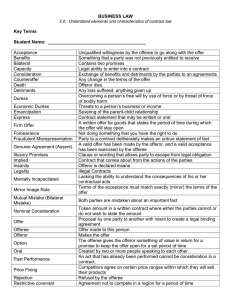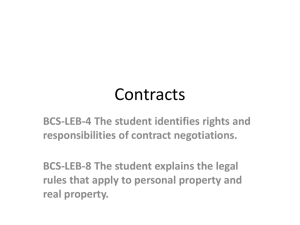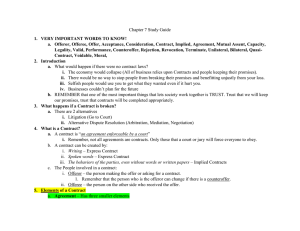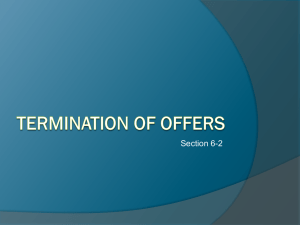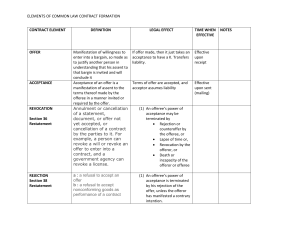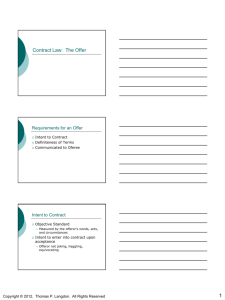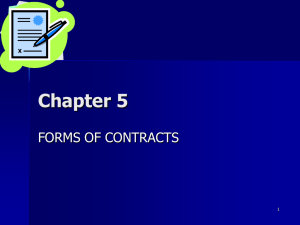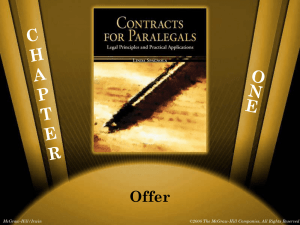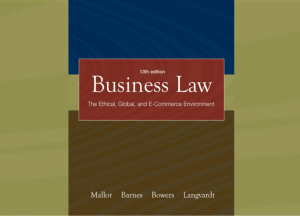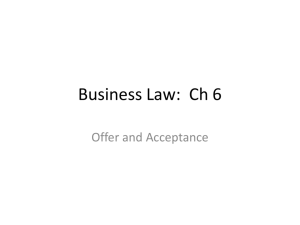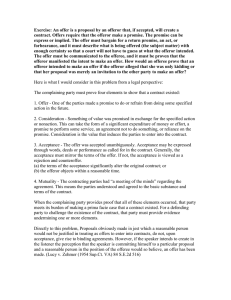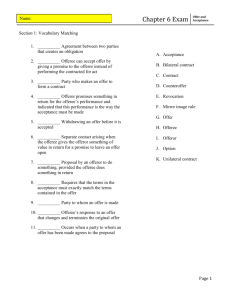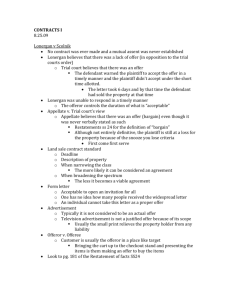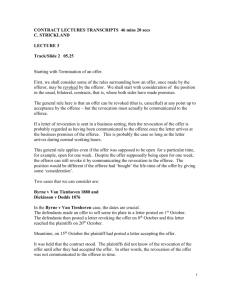The “Objective” Theory of Contracts
advertisement
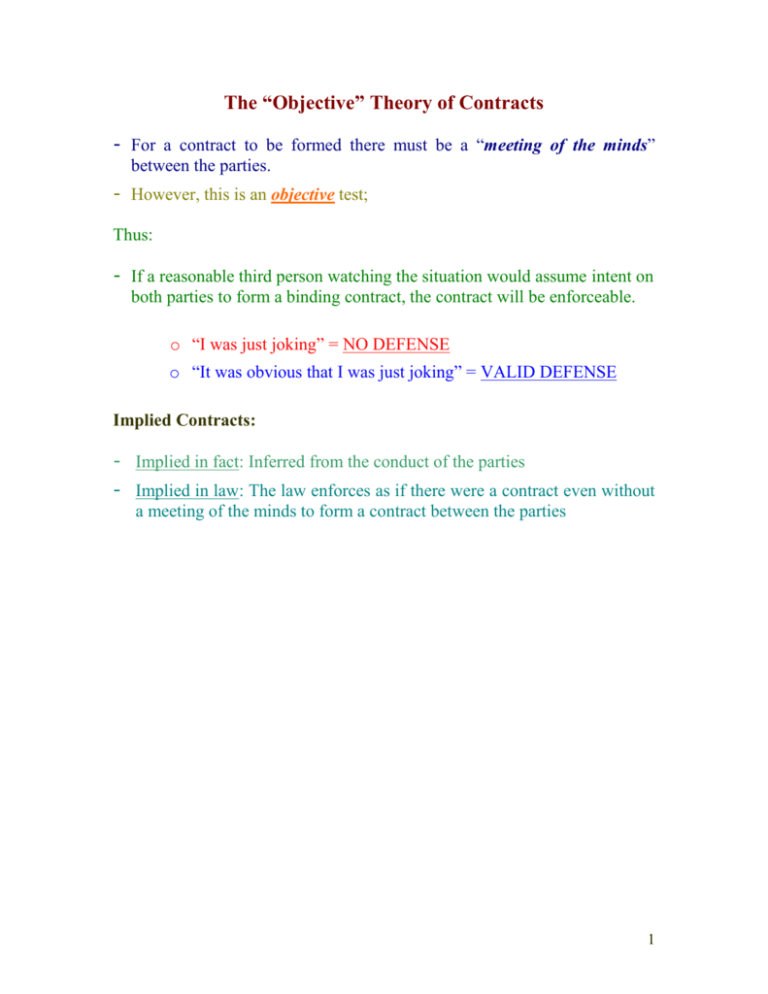
The “Objective” Theory of Contracts - For a contract to be formed there must be a “meeting of the minds” between the parties. - However, this is an objective test; Thus: - If a reasonable third person watching the situation would assume intent on both parties to form a binding contract, the contract will be enforceable. o “I was just joking” = NO DEFENSE o “It was obvious that I was just joking” = VALID DEFENSE Implied Contracts: - Implied in fact: Inferred from the conduct of the parties - Implied in law: The law enforces as if there were a contract even without a meeting of the minds to form a contract between the parties 1 The Offer Definition: An expression of a willingness to be bound by a contractual agreement. Contrast: “Invitation to negotiate” (not an offer): something that only expresses an interest in forming a contract eventually or negotiating for one; does not show an intent to be bound. Examples of things that are usually not offers: o “I will not take less than $5,000 for this car.” o “Would you pay me $5,000 for my car?” o “I would certainly consider selling you my car for $5,000 o “I quote you a price of $5,000 for my car.” o Advertisements Exception: If the statement is targeted toward a specific person with a specific quantity, a court might infer an offer 2 Termination of an Offer 1) Lapse of time - If the offeror sets a time limit, the offer expires after that time period - If there’s no set period, the offer expires after a “reasonable” time under the circumstances o For an oral conversation, that’s usually the end of the conversation o In normal commercial settings, 30 days is sometimes applies 2) Rejection - In most jurisdictions, this applies even if the offer was to stay open for a longer period of time, rejection kills the original offer Counter-offer counts as a rejection 3) Revocation - Offeror can always revoke the offer; even if she promised to keep it open for a set period of time; unless… There was consideration for keeping the offer open (“option contract”) - Conduct inconsistent with the existence of the offer that comes to the attention of the offeree automatically revokes the offer. - In UCC cases, a merchant’s firm offer is irrevocable for however long it says it will be open for or (if a time is not given), for a reasonable period of time) 4) Death or Incapacity of the offeror or the offeree 3
